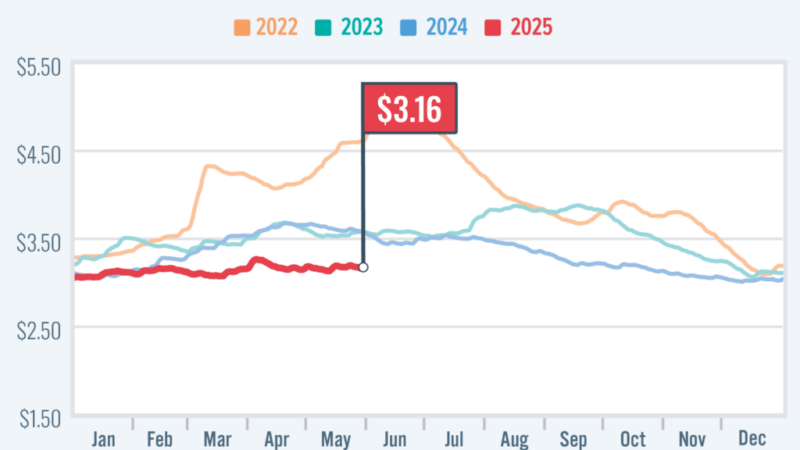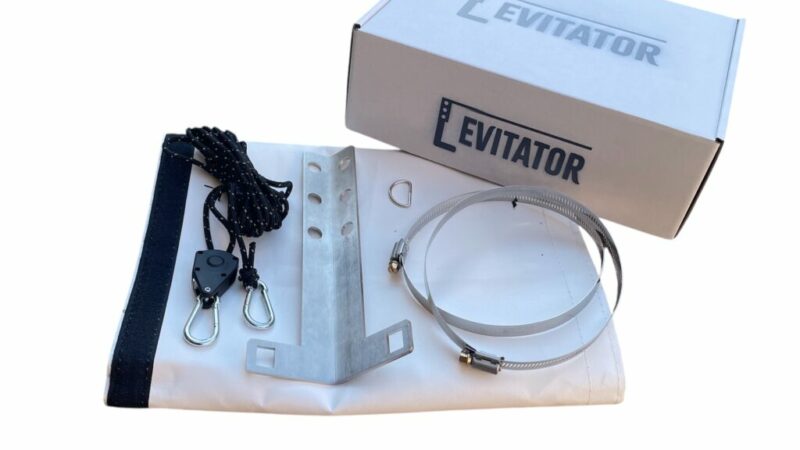Outdoor Industry Hails White House ‘De Minimis’ Action – RVBusiness – Breaking RV Industry News

WASHINGTON, D.C. – Last week, the White House announced its intention to make sweeping changes to Section 321 de minimis entry procedures through the federal regulatory rulemaking process. The changes, designed to curtail the flood of duty-free shipments, particularly from Chinese e-commerce platforms, aim to bolster U.S. enforcement capabilities to prevent bad actors from circumventing health, safety, and trade laws. The timing of when the Administration intends to issue the new proposed rules remains uncertain.
EDITOR’S NOTE: To learn more about how the de minimis changes affect the RV industry, see: “What Latest ‘De Minimis’ Actions Mean for the RV Industry”.
In a Fact Sheet released on Sept. 13, the Biden Administration outlined a series of reforms targeting the de minimis provision under Section 321, which currently allows low-value goods, under $800, to enter the U.S. duty and tax free, with limited data requirements. The reforms will specifically reduce the volume of these shipments and improve data collection to enhance enforcement against illegal and unsafe imports.
In a joint press release, the Department of Homeland Security (DHS) and Customs and Border Protection (CBP) reaffirmed their commitment to fast-track the rule changes while simultaneously pursuing legislative solutions. Homeland Security Secretary Alejandro Mayorkas echoed the urgency for reform, expressing eagerness to work with Congress to expedite comprehensive de minimis legislation. He highlighted the need for action before year-end, citing the widespread abuse of the system that has allowed foreign e-commerce platforms to gain unfair advantages. Simply put, Congressional action will prompt implementation of the reforms more quickly than if the changes have to go through the federal rule-making process. However, despite bipartisan efforts, no final compromise has been reached, prompting 100 House Democrats to urge the administration to take decisive executive action.
“This announcement represents a critical step forward in leveling the playing field for American manufacturers and retailers,” said Kent Ebersole, president of OIA. “We applaud the administration’s leadership and look forward to further congressional action to protect U.S. jobs and industries, including providing de minimis parity for U.S. FTZs.”
Among the key reforms, the proposed changes will:
- Revoke de minimis eligibility for import-sensitive products, including textiles and apparel.
- Bar items subject to trade enforcement actions, including Section 301 tariffs on China, from de minimis entry.
- Require shippers to provide additional data, including 10-digit HTS product codes.
- Implement stricter penalties for non-compliance, targeting those trafficking illicit goods.
The White House’s announcement comes as Congress continues to grapple with finding a compromise on competing legislative proposals. The House Ways and Means Committee passed the End China’s De Minimis Abuse Act earlier this year, while Senate Finance Committee Chairman Ron Wyden (D-OR) is championing a similar proposal not yet introduced — the FIGHTING for America Act — to tackle the issue.
Outdoor Industry Association (OIA), and the nearly 400 outdoor businesses it represents, have been among the key advocates for these reforms, noting the substantial harm caused by the unchecked flow of e-commerce shipments. In an industry letter to Chairman Wyden and House Ways and Means Committee Chairman Jason Smith (R-MO), OIA stressed the urgency of de minimis reform for the outdoor recreation sector, which contributes $1.1 trillion to the U.S. economy and provides 5 million jobs across the country. OIA is in support of Chairman Wyden’s de minimis bill, and hopes to see its passage this year, particularly with the inclusion of de minimis parity for U.S. Foreign Trade Zones (FTZs). In addition, OIA and its partners articulated the need for the retroactive renewal of the Generalized System of Preferences (GSP).
In conjunction with the de minimis announcement, the United States Trade Representative (USTR) finalized decisions from its Four-Year Review of Section 301 tariffs on China. The USTR’s findings confirmed that Section 301 tariffs will remain in place, with increases on strategic sectors such as electric vehicles, solar equipment, and critical minerals slated to begin this month. Notably, products like ship-to-shore cranes and enteral syringes will be exempt from these tariff hikes.
The changes represent a unified effort by the Administration and Congress to strengthen protective trade measures as the U.S. faces rising concerns over military, economic, and technological threats from its largest trading partner. The announcements follow “China Week,” where the House passed 25 bills to address these issues.
About the Outdoor Industry Association
Based in Boulder, Colo., with offices in Washington, D.C., Outdoor Industry Association (OIA) is the leading trade association for the outdoor industry. For more than 30 years, OIA has served as the trusted convenor, resource, and voice of the outdoor industry. OIA unites and serves manufacturers, suppliers, sales representatives, and retailer members through its focus on trade and recreation policy, sustainable business innovation, and outdoor participation. The association provides its members with insights, advocacy, and opportunities for action that support the long-term success of outdoor businesses and ensure the outdoor experience for all. For more information, visit outdoorindustry.org







